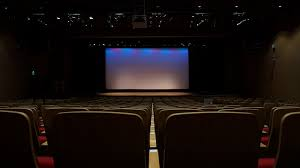New musicals shake things up in New York
The first Secretary of the Treasury having a rap battle with Thomas Jefferson. Lesbians singing about their dead father. Deaf teenagers discovering sex. The 2015 Broadway lineup.
This year has introduced an eclectic collection of new productions, and it may just lead to an entirely new age of Broadway.
“Hamilton,” a new American musical currently running at the Richard Rodgers Theatre, is one of these stunning shows. Writer, composer, lyricist and performer Lin-Manuel Miranda takes a modern look at the story of America’s Revolution and early days of independence through his unique score and casting.
Even though the concept of a rap-opera about Founding Father Alexander Hamilton sounds ridiculous, it is somehow the Broadway blockbuster of the year.
“‘Hamilton’ is basically a hip-hop album, but about history,” said a junior at the University of North Carolina School of the Arts Katherine Ledbetter. “Those two shouldn’t go together at all, but this just clicked.”
In fact, the show has clicked so well that all full-view tickets are sold out until July 2016 and hundreds of New Yorkers huddle outside the theatre daily for a chance to win front-row seats.
The cast of “Hamilton” shares a couple of fundamental differences with the original founding fathers. In the casting call for Hamilton, the production crew asked for a multi-ethnic cast, and multi-ethnic they received. Miranda, whose family comes from Puerto Rico, leads as Hamilton. His fellow co-stars represent a wide range of nationalities and races, including an African American George Washington (Christopher Jackson).
“Lin actually performed one of these songs at the White House (Poetry Jam) a few years ago,” said “Hamilton” fan and photographer for Beyond the Stage magazine Gabi Talisman in an interview with The Guilfordian. “Everyone was like, ‘What is this rap song about Alexander Hamilton?’ and after he performed it, everybody wanted to see it. As such, the Obama’s have come, all of the treasury secretaries have come and John Kerry was here on Friday.”
As for “Hamilton’s” mainstream popularity, Talisman believes it can be attributed to the star-spangled cast and hip-hop-infused soundtrack.
Meanwhile, another heart-stopping production is currently running only two streets over from the “Richard Rogers Theatre.” Some theatre fans may remember the Broadway hit “Spring Awakening.” Others may recognize the leads, “Glee”’s Lea Michele and Jonathan Groff. Either way, a new revival has been stunning audiences since September.
Straight out of the Deaf West Theatre in Los Angeles. California, the musical’s diverse mix of hearing and non-hearing actors adds an entirely new element. Director Michael Arden combines sign language, spoken dialogue and written word to accommodate an audience that is as diverse as its cast.
The premise of “Spring Awakening” focuses on the lack of communication between generations. Wendla, a main character, is deaf in this adaptation. This has major consequences when her hearing mother cannot bring herself to explain sex to her daughter.
“The actor who is Wendla’s mom is signing in this clunky way,” said deaf writer Sara Novic, to NPR. “She signs ‘vagina,’ (…) But really quickly, she moves it up to her chest so it looks like a heart.”
The show seamlessly adds these new facets to the plot and characters. The divide between the deaf and hearing characters fits so well you might find yourself wondering how it ever was performed without.
The Guilford College theatre program has proven itself very diverse as well. An intriguing group of plays and musicals are lined up for this year, including the Jan Term production of “Rent” and a production of “Dead Man’s Cell Phone” this fall.
This season is shaping up to be one of the best in years for theatre. Our school’s students, and America as a whole, should keep their eyes, and wallets, open for this new age of theatre.
“Theatre has a lot to offer in terms of people learning things,” said first-year Blue Shumate, a theatre major. “I’ve always felt that seeing something being performed on stage is a lot more real and raw than seeing it in a movie or reading about it in a book.”





